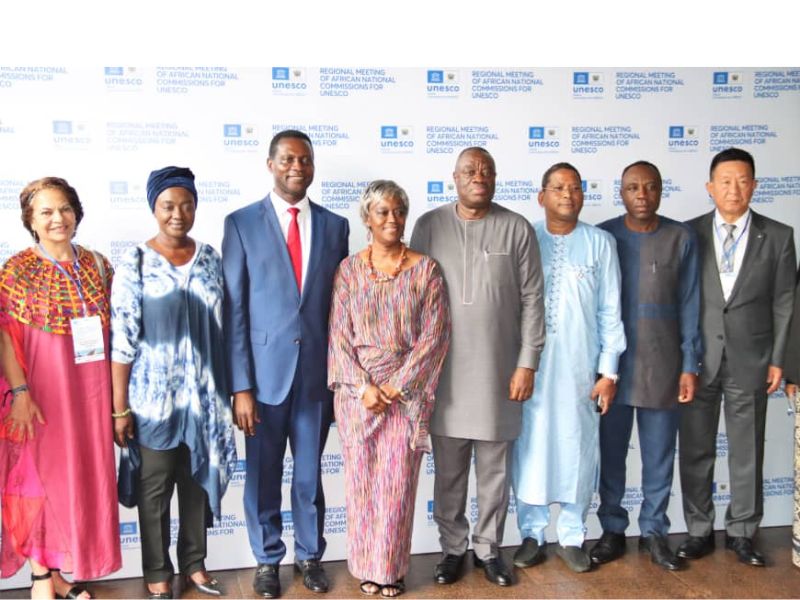The Minister of Education, who is also the Chairman of the Ghana Commission for United Nations Educational, Scientific and Cultural Organisation (UNESCO), Dr. Yaw Osei Adutwum, has disclosed that the government and UNESCO had adopted approaches to address the diverse heritage challenges in the country.
The Ghana Commission for UNESCO has organised a three-day Regional Meeting of African National Commission for UNESCO on its Global Priority Africa Programme, from 11th to 14th September, 2022.
Addressing the participants at the opening ceremony of the Regional Meeting under the theme: “Mobilising Partnership for the Global Priority Africa Programme” in Accra yesterday, the Education Minister said:
“The strategic approaches have led to the formation of the Ghana Heritage Committee, which recently launched the first-ever Multi-Stakeholder Heritage Strategic Framework in the West Africa Sub-Region.”
The Minister noted that Ghana joined the international community under the UNESCO World’s Heritage Convention as far back as 1979, to protect and cherish the world’s natural and cultural heritage by inscribing on the World Heritage list, the forts, and the Castles.
“This historic move was an important one, since Ghana is home to over 80% of these ancient iconic monuments in Africa found along the Atlantic Coast of the country,” he added.
He further added that Ghana had been at the forefront of multilateral action through the UNESCO Man and Biosphere programme to sustainably utilise biodiversity and ecosystem services to improve livelihoods and protect the environment.
“Ghana was instrumental in the formation of the African Network of Biosphere Reserves (AfriMAB), which aims at promoting regional cooperation among the MAB National Committees and Biosphere Reserves in Sub-Saharan Africa,” he stated.
The Minister reinstated that education was the cornerstone for new transformation, and that how Africa stood to progress on the Sustainable Development Goal 4 (SDG4) target, including the opportunities offered by digital learning in recent years is a subject of immerse importance to all.
The Minister for Tourism, Arts and Culture, Ibrahim Mohammed Awal, in his remarks, also stated that there had been many instructions to educational systems around the world, because of global health emergency.
The Minister disclosed that the government of Ghana was spending $25 million to improve the tourist attraction in the country, and urged tourists to visit the various sites before they leave.
UNESCO’s support to Africa under its Global Priority Africa Programme is geared towards ‘an integrated, prosperous, and peaceful Africa, driven by its own citizens, and representing a dynamic force in the global arena’ – an objective which also aligns with the broad continental vision of the Africa Union – ‘The Africa We Want’, Vision 2063 and the Sustainable Development Goals (SDGs)
The implementation of actions regarding Global Priority Africa in all UNESCO’s Programmes is guided by a framework known as “The Operational Strategy for Priority Africa”.
The current Operational Strategy for Priority Africa 2022-2029 has been developed based on consultations with Member States, including the UNESCO Africa Group, programme sectors at Headquarters, field offices in Africa and the Bureau of Strategic Planning.
The meeting seeks to raise awareness of the five flagships for National Commissions to be able to prioritise and participate in the Global Priority Africa flagship effectively and also to engage national commissions and experts to share experiences on best practices and to share ideas on the implementation process.
The meeting will capacitate national commissions in member states to become effective national champions in the Global Priority Africa flagships in terms of mobilization for partnerships, resources and advocacy.
The conference brought together over seventy participants from African NatComs, representatives from other sister NatComs (Azerbaijan, Canada, France and Germany), Directors and staff from UNESCO Headquarters and Regional Offices in Africa.








